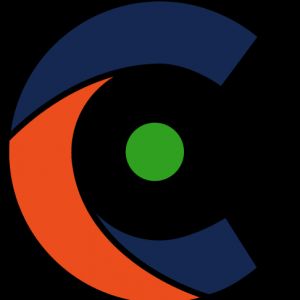There are people like you who are music lovers and think of making great music which people can relate to.
I know you might have dreams of having your own studio, your personal zone. A place where creativity comes naturally to you and where you make music that reaches millions of people.
Why not turn your dream into reality and build your own home studio?
Two main reasons building a home studio is definitely a good idea:
- It saves lots of time and money for you.
- It will work as a perfect foundation for you to create something of your own.
So, let's make this happen for you.
Following are the things you need to set up a studio:
- Computer
Computers are one of the most useful investments when setting up a studio. You want to buy fast computers in your budget but also support all the required software for music production like Ableton Live, Acid Pro, Cakewalk SONAR, etc.
And if you already have a computer, then we would recommend to invest in RAM rather than investing in a brand-new computer.
- DAW/Audio Interface Combo
DAW is Digital Audio Workstation. It is a software useful to record, edit and mix music. While Audio Interface is the hardware that you can use to connect the computer with the rest of the gears.
You can buy these two things either separately or as a combo. We recommend purchasing them as a combo.
And here's why:
- It's cheaper to buy them together.
- The combo comes with compatibility and tech support.
Two companies that offer you this combo are Presonus and Avid. And they are the top of the line brands for DAW and Audio interface.
- Microphones
After some time, your studio will become successful and you would need a collection of microphones.
But, initially, all you need is just one or two microphones and you will be good.
Remember, the microphones you should have depends on the instruments you plan to record.
Most people start with recording vocals and so they use the classic diaphragm condenser vocal mic. Our recommendation: Rode NT1A.
While for the high-frequency rich instruments like acoustic guitar, piano or cymbals, you might need a small diaphragm condenser mic. As a starter, you can buy AKG P170.
For drums and electric guitar amps, the best mic to start with is Shure SM57. Whereas, for the bass guitar, kick drums, and instruments which have low frequency, you must use AKG D112.
Remember, the market of studio microphones is huge which you will learn as you move ahead with your studio.
- Headphones
Initially, most of your time will go in the recording so one headphone will do the work.
Whereas, for a professional studio, there are two specific designs:
- Closed-back headphones for tracking: They offer optimal isolation with lesser sound quality.
- Open-back headphones for mixing: They offer better sound quality but with less isolation.
Remember, as you are just starting, a closed-back headphone will do instead of an open-back headphone. Additionally, we recommend you to use extension cable as the standard headphones' cables are shorter.
Pro tip: When choosing headphones, go for the best one which fits your budget. Because you'll face problems with cheaper ones as the signals are not proper due to constant movement.
- Cables
They are the most essential part of your home studio. When you scale your studio, you might need multiple cables. But, as of now, you need these three cables to start:
- One long XLR cable for mic
- Two short xlr cable for your monitors.
- RCA connector to connect your instruments with speakers. You need a quality rca connector to pass top-grade audio signals.
- MIC Stand
Looking at a variety of mic stands, you might feel that they are the same but in reality, they are not the same.
The solid mic stand is a worthy investment for your home studio but mic stands can be pricey. So, as a beginner, it can be difficult for you to work on such a tight budget.
Hence, while you are using it for the first time, it is okay to go for a cheap one but make sure its a reliable stand.
- Pop Filters
Pop filters are not a necessity, but we would recommend you to invest in them.
Why?
Because they filter out all useless vocal artifacts known as popping. It is the low-frequency blast of air caused by the pronunciation of "P" and "B".
Again, it is not necessary to have them but as a beginner, you might need them.
Wrapping it up:
Make your music and share it with millions of people. Now nothing can stop you from having your own home studio. Let out your creativity and create magic.


